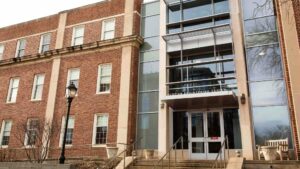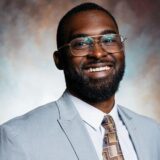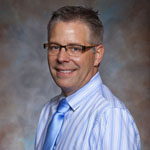Advancing DEIJ in engineering
The Engineering Division is hosting a talk on diversity, equity, inclusion, and justice (DEIJ) on Thursday as a required component of its Introduction to Engineering course. Led by Rob Young ’14, director of the Office of Intercultural Development, the event will focus on implicit bias and microaggressions, give attendees personal development opportunities, and encourage the ongoing pursuit of multicultural life-skills development.
Introduction to Engineering is a required course taken by all 225 first-year engineering students. The class also is open to upper-level students in majors across the College. This semester’s enrollment of non-engineering majors has reached an all-time high of nearly 60 students, most of whom are humanities and social science majors.
 The idea of adding DEIJ content in ES101 is part of an ongoing collaboration between Engineering Student Council (consisting of engineering student leaders) and Engineering Council (a long-standing group of the Engineering Division’s department heads, program chairs, and director). Last year two student representatives were added to the Engineering Council to give students a voice “in the room where it happens.” Their presence has impacted admissions events, facilities upgrades, course scheduling, and more, all in very positive ways. This year’s student representatives, Alex Ashley ’22, Rachel Hurley ’23, and Marco Olivas ’23, pushed forward the idea of including DEIJ topics in the curriculum, particularly in ES101. They approached Rob in the beginning of the semester to discuss plans for the talk.
The idea of adding DEIJ content in ES101 is part of an ongoing collaboration between Engineering Student Council (consisting of engineering student leaders) and Engineering Council (a long-standing group of the Engineering Division’s department heads, program chairs, and director). Last year two student representatives were added to the Engineering Council to give students a voice “in the room where it happens.” Their presence has impacted admissions events, facilities upgrades, course scheduling, and more, all in very positive ways. This year’s student representatives, Alex Ashley ’22, Rachel Hurley ’23, and Marco Olivas ’23, pushed forward the idea of including DEIJ topics in the curriculum, particularly in ES101. They approached Rob in the beginning of the semester to discuss plans for the talk.
Rob hopes this will start the process of weaving these discussions into the fabric of the institution to create a more empathic and inclusive community.
 “I hope that Engineering’s ES101 event shows other departments how they can engage with the Office of Intercultural Development, and I hope this will have a domino effect and grow from there,” he says.
“I hope that Engineering’s ES101 event shows other departments how they can engage with the Office of Intercultural Development, and I hope this will have a domino effect and grow from there,” he says.
While the talk was planned after distribution of syllabi, the 11 ES101 instructors have agreed to require students to attend it as part of the course by adding a homework assignment consisting of a written reflection on the presentation and discussion.
 “Fostering a more diverse and inclusive climate is a top priority in the Engineering Division and across the College,” says Scott Hummel, director of engineering. “Having the student voice involved in the process of creating a more inclusive environment has already led to meaningful change like the addition of this ES101 talk, and it is making us better.”
“Fostering a more diverse and inclusive climate is a top priority in the Engineering Division and across the College,” says Scott Hummel, director of engineering. “Having the student voice involved in the process of creating a more inclusive environment has already led to meaningful change like the addition of this ES101 talk, and it is making us better.”
The Engineering Council is discussing ways to bookend the student experience by incorporating DEIJ conversations in capstone experiences as well as ES101 beginning next year.
Young hopes this example will become just one way that the institution amplifies the Office of Intercultural Development’s work, such as its multicultural competency training for students during the summer and winter breaks.
“I would love to have a culture where this is an ongoing discussion,” he says.